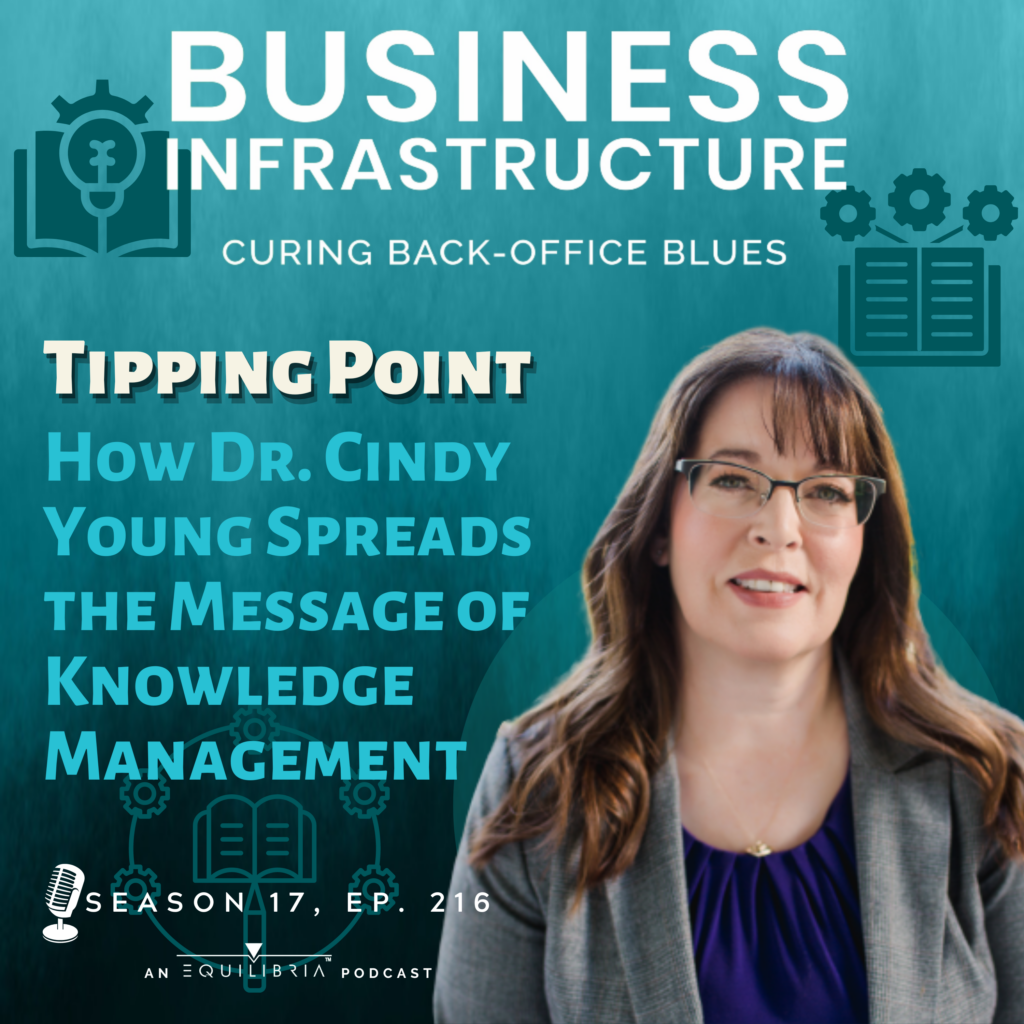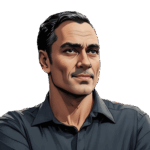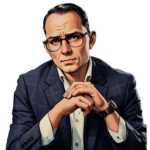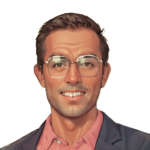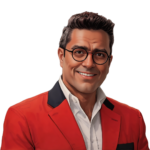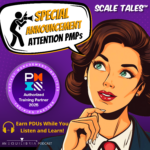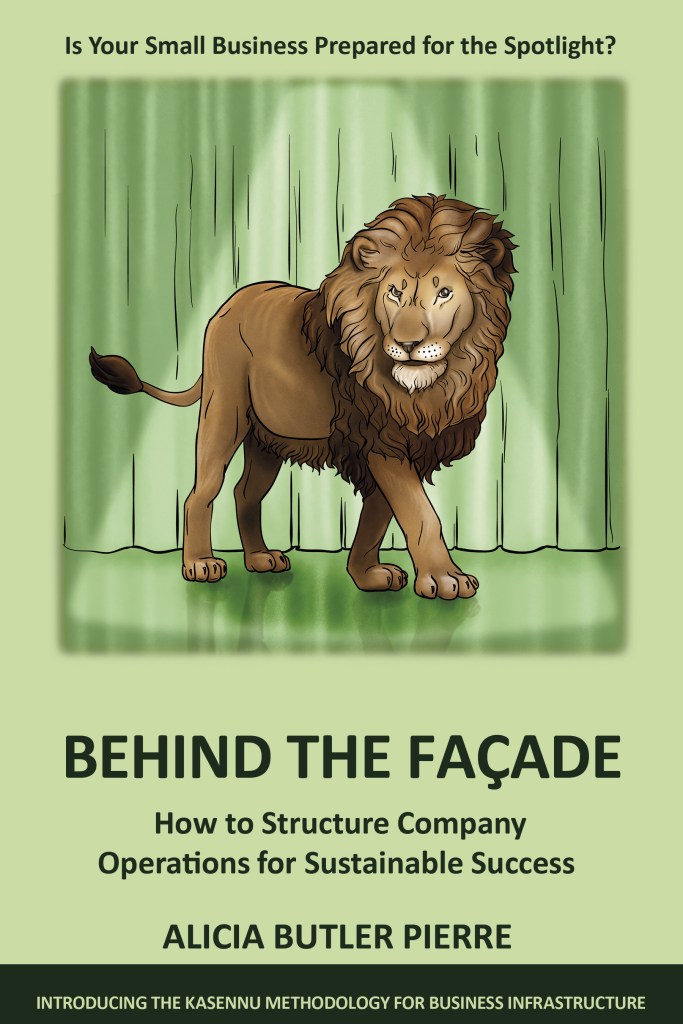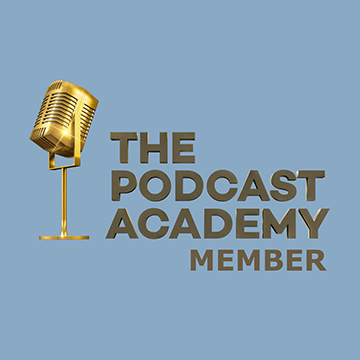Transcript
My ‘Cindy Young’ definition of knowledge management is knowing what to do with the information that you have.
As you continue operating your business, people will come and go and technologies will continue to evolve. But what happens when people leave, and they take their operational knowledge of how they use these technologies with them?
This is the Business Infrastructure podcast – the show where we offer strategies, tactics, and resources to cure back-office blues and to keep your business operating as good on the inside as it looks on the outside. My name is Alicia Butler Pierre and we’re about to hear from someone who’s on a mission to put knowledge management on the map!

This episode is brought to you by Equilibria, Inc. the company behind this podcast where we design scale-ready business infrastructure for fast-growing small businesses.
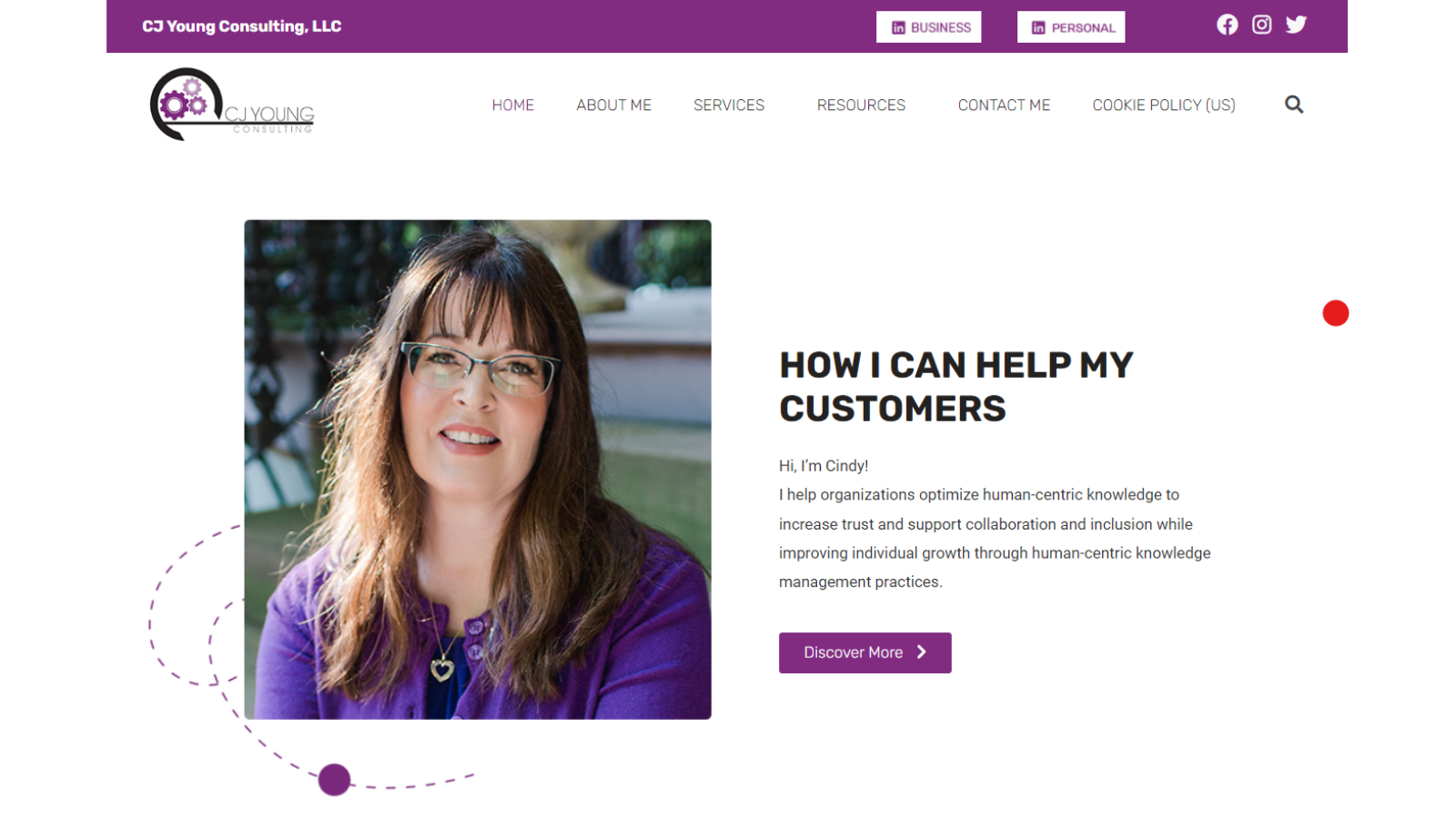
Dr. Cynthia Young, also known as “Cindy”, is the founder and CEO of CJ Young Consulting, a company specializing in knowledge management. She leverages a content management strategy to increase exposure to knowledge management – what it is, why it’s needed, and solutions for creating it. If knowledge is power, then what is documented and managed knowledge? Well, you be the judge.
This is Ep. 216: Tipping Point – How Dr. Cindy Young Spreads the Message of Knowledge Management
I’m Dr. Cindy Young. I only go by doctor when I’m teaching classes or when I’m putting on a presentation somewhere, I grew up a lot of places, but I mainly from Houston, Texas. I got through high school and then I joined the military when I was 18. So I really didn’t have a home until I sat down after I retired, which was about 10 years ago and I retired to Chesapeake, Virginia.
I’ve been here since ’98. That’s about 25 years.
Cindy joined the Navy to be exact. Her time there would stretch and challenge her in ways she couldn’t have predicted – all in a good way! And to think…it almost didn’t happen had she not accepted a dare.
Well, I was senior in high school. I was at lunch and one of the guys dared me to go to the recruiter because he was going to get points towards promotion if you got somebody else that recommendation. And so I went in there and I ended up enlisting. And so six months after I
graduated high school, I went to the Navy. I was enlisted. I went to school for about a year there and I became a CoreLogic technician where I did troubleshooting on electronic equipment. And when I was in my second year of being at my first command, I decided I was going to go to school. So I started working on my associates degree and I worked on that until, I guess, about three years later then I decided, well, there’s more out there.
I heard about this software program. And so I went to University of Maryland and George Washington, because that’s where the Navy people went to school. And I went to school with midshipman, but I was considered an officer candidate because I was enlisted also. And I got my
commission. So that’s when I got my English degree. And then I was a surface warfare officer. So on my ships, you’re expected to get a master’s degree when you become an officer, just an expectation it’s looked at on your performance reviews. And, you know, it can count against you if you don’t. So I went and pursued my first MBA. Actually, I have two of them. I pursued my first MBA got that in ecommerce. And then I decided I was gonna start working on a doctorate. So I started working on a Ph.D. and then I got dumped by my chair because I was on deployment and kind of like getting a Dear John letter.
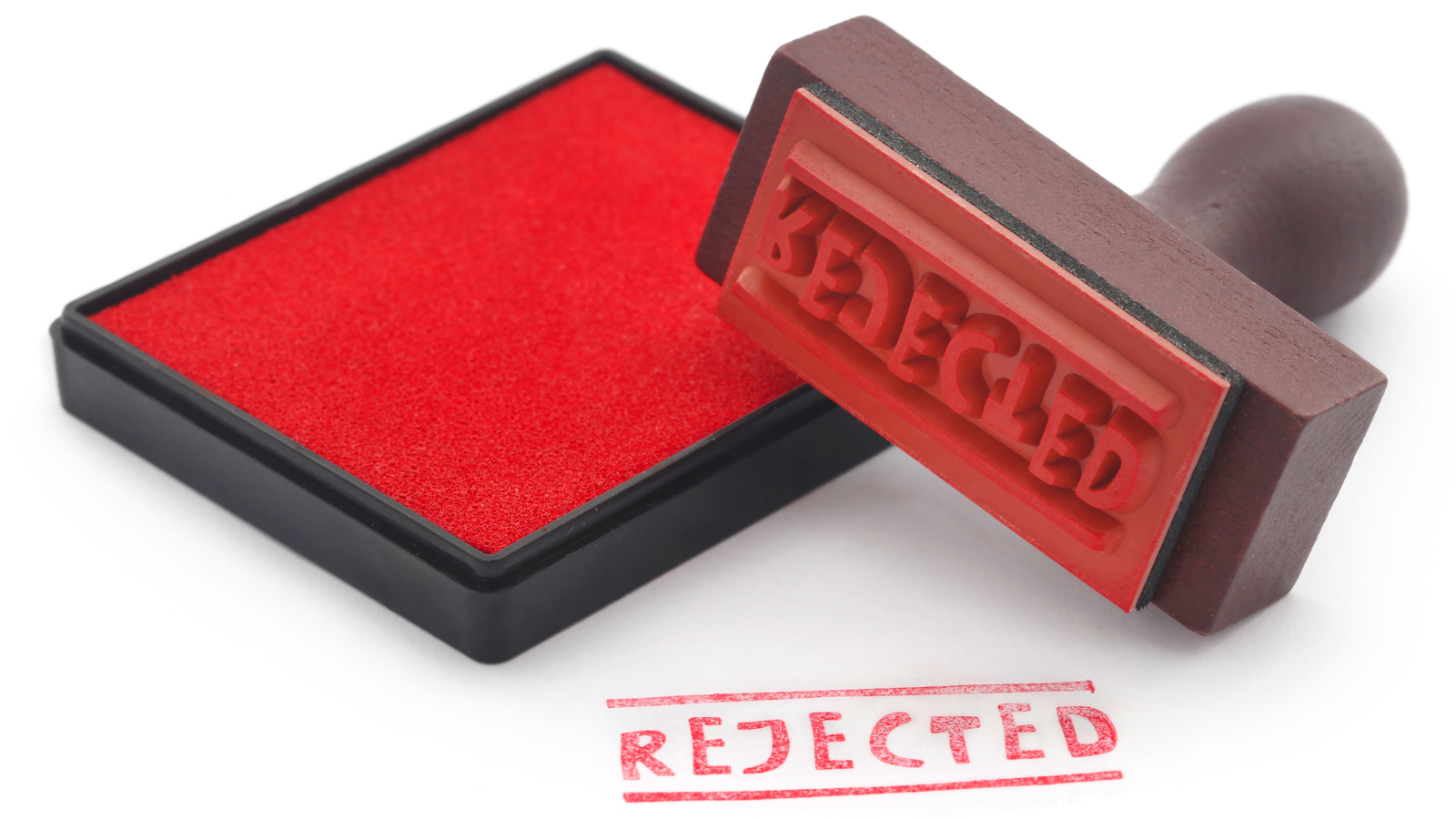
In other words, Cindy received a rejection by her assigned professor, or chair. But duty called and her deployment meant she couldn’t be around as much, in person, as her chair would have liked. But Cindy wasn’t going to give up so easily.
My chair said he couldn’t handle not talking enough and that I wasn’t giving enough time to my coursework. And so I would have to find another chair. And I ended up just talking to my captain, talking to some peers and I dropped out of that and I took a second master’s in advanced management studies because I had the credits for it. And then I ended up getting my doctorate after I retired and started working and decided I wanted to do more. I got a doctorate because I just wanted to have that in my background because I never thought I could graduate high school, much less, you know, a degree. I got a DBA, which is a working doctorate. so it’s not a PhD, but I can still teach, which I do. I teach project management at night.
So Cindy did end up getting something close to a PhD after she retired from the Navy. I wanted to know what led to her decision to leave military life and become a civilian again?
Well, it was actually two things. The first thing was that I, when I called my detailer to see what orders are available, he told me, cause I was primarily combat systems. I worked weapons and weapons systems and I was on the ships, running training events for weapons and for different combats. My detailer said, well, we have this great job. You can be a damage control assistant. And so that, that’s the way look out for firefighting gear, trains teams to fight fires and prevent flooding and the cure from sledding and basically save the ship if it’s been hit or if it’s got a crack in the hole, things like that. And that’s not something I wanted to do, but there was no other jobs out there. And I had already done 22 years by the time, but I’d have to do 23 and then transfer that job and I wasn’t gonna do it.
And they wanted to send me to a carrier that was decommissioning, which, first of all, that’s not a good place to be and you want to be able to see. And then also about the same time I was teaching my class for the weapons, that was I was teaching for, and my Theo comes looking for me at four o’clock that day and said, “I need you to take care of this” and want me to do something and I asked him, “Why didn’t you come find me sooner?” He goes, “Well, I didn’t know where you were.” And I said, “I’ve been in the classroom all day where I’ve been the last two weeks because we teach through that time there.” And so I had my resume or my resignation letter all set and I just sent it. I sent it off that day. I was so frustrated. Oh, well, those two things just made me want to retire, but you know, good thing is I get a good retirement check and it helps, help me to take time to find a job when I retired.
Okay, so Cindy didn’t exactly retire under the circumstances she probably thought she would, but all was not lost. She had over 20 years of experience under her belt along with three degrees. She knew she wanted to do something different and now was her chance to do just that. Two months into her first job outside the Navy, she was presented with an opportunity.

Well, like most people, you don’t really know what you want to do when you retire from the Navy. My boss asked me if I would be interested in getting project management certified, get my PMP. And I’m like, “Okay, now are you going to pay for it?” And they said, “Yeah, we’re going to pay for your bootcamp and we’ll pay for your test.” So I went to take the test and I failed it. I failed it that first time after I took the bootcamp, I failed it because I tried to answer. I felt I really take the test after me.
I’m sure this came as a total shock to Cindy. With all of her academic achievements, it seems absurd that she would fail a certification exam. But in true military fashion, she reflected on what led to that outcome…and changed her strategy.
Don’t come in there with common sense. There’s no room for common sense on that test because they want you to think exactly what the PMBOK says and I’m telling you, it’s it worked well for me that second time. Cause I took it three weeks later and passed it. What I mean by that is, you know, when people tell you, what do you do when you have problem and you have, you have something that’s going wrong in the, wrong in the project that you have to problem solve. You know, you try to follow it to the lowest level. Now the PMBOK should go to the sponsor and sponsor’s not going to have time for project manager, you know, every single day for everything that comes up.
At the time she became a certified Project Management Professional or PMP, she was also working as a knowledge manager – a career that she would eventually build a business around.
So I worked as a knowledge manager, I realized I was doing all these things as a knowledge manager when I was in the Navy. And then when I went to, I decided to go back to school or my DBA and I got a project management because there was no degree in knowledge management, but I wrote my dissertation on knowledge management. So it all works out.
It was right after I got back from speaking at the Knowledge Management Institute, there are annual symposium. I spoke at it and I met a couple other people that had businesses that did knowledge management. Like I could do that. And I wasn’t brave enough to take the jump to just do that exclusively. You know, they’ve got the mortgage, they’ll got, you know, animals to feed, married, wouldn’t want to freak my husband out. And so I decided I was going to start a business, just start slow, you know, figure out what I wanted to do. But I tell you, I was totally proud of myself when I went down to the courthouse and figured out how to get a license to start with, you know, going through Virginia yet the go to all sorts of websites, Hey, pay $50 here, a hundred dollars here. And eventually, you know, I started a business. I got everything in place, but still looking at what it is, you know, what products and formats and stuff we’ll want to use. But that’s what made me want to start it because I thought I could do it.
To give you a sense of the timeline involved – Cindy retired from the Navy in 2012. By the time she started her business, it was February 2020 – a time when the covid-19 pandemic was rapidly spreading around the world. Yet she was determined to start a business. As she soon found out, registering her new business and filing the necessary paperwork was one thing, but now comes the hard part – getting clients! That’s where remote networking helped. One of the online groups she joined was Dorie Clark’s Recognized Experts community.
I joined her recognized expert group on in September, 2019. So I been with her for almost three years. And you know, I’m not a hundred percent, she’d know who I am because I don’t reach out to her as much as other people do, but I’m very active in the group. I met a lot of people. In fact, I got to know them better in Clubhouse, you know, the, the audio app on your phone. And so I’ve been able to talk to love people there. When I started off with my business, I kept thinking about things that Dorie would recommend. And so what I started doing is I started writing for HBR Ascend.
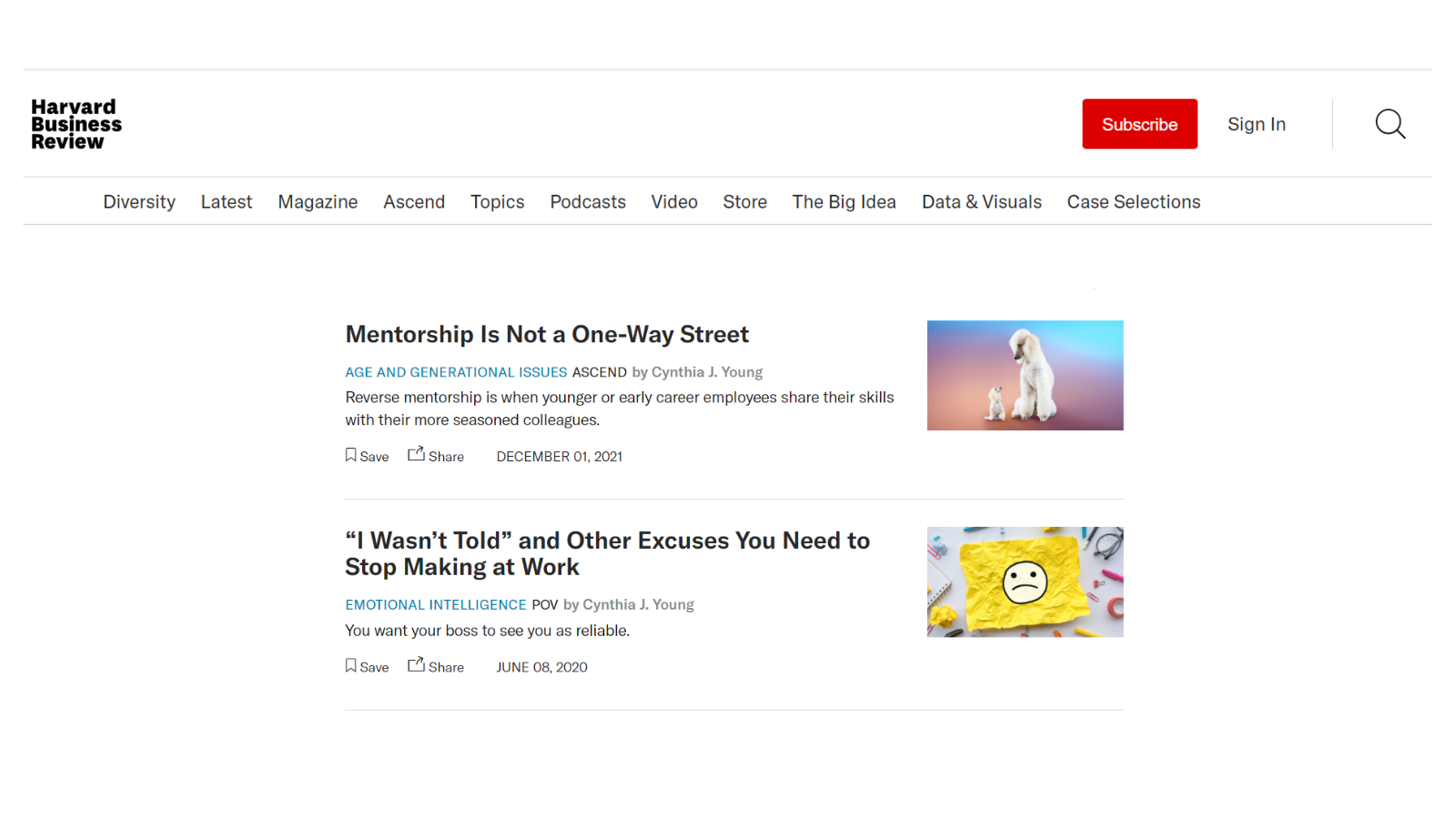
That’s the younger professional arm of HBR. And if you go to their website, you’ll see that they have an Ascend tab. And in the end I’ve written five articles for them, which is really cool because now it comes up under HBRAscend.org and look me up. They’d be able to find two articles, but not all five because when they merged websites, they cleaned up some of the articles. I also became a contributor to this magazine called Lean Mag. And I contributed to several HARO articles, which is what Dorie’s group taught me about – Help A Reporter Out – where you can become a resource. And I’ve been quoted in U.S. News and World Report.
All of Cindy’s article contributions led to an idea for a TEDx Talk. So, she signed up for a TEDx bootcamp which is where she and I met. Shortly after that bootcamp ended, Cindy found herself on a virtual TEDx stage. It ignited a series of events that would catapult her business to the next level. Coming up after the break Cindy will share with us how this tipping point solidified her position as an authority on knowledge management.
You started your business because you believed you could make a difference. But now you have more demand than you can keep up with and if you don’t get your operations in order soon, you could lose everything you’ve worked so hard to build. The chaos is causing angry customers, bad reviews, failed audits, and more. The need for a unified team with processes they can follow and tools they can use without your presence is apparent. But where can you go for support?

The Smooth Operator masterclass may be the solution you’re looking for. It’s an on-demand, online course that not only teaches you what business infrastructure is, but also shows you how to create it through video demonstrations and access to a private community where you can get even more support. Build a foundation for operational success with a scale-ready framework that’s tried, tested and true. Sign up today at SmoothOperator.courses. That’s SmoothOperator.courses.
Before the break, we learned that Cindy had an idea for a TEDx Talk. Once delivered, it became a tipping point for positioning her as an authority on knowledge management. She’d already written articles for well-known publications to increase exposure, but this TEDx Talk would be different. How’d she do it, especially during the pandemic? Well, it started with that online bootcamp that she attended. Here’s Cindy…
Marie Incontrera and Elaine Bennett had this bootcamp. And so I went to their bootcamp and came with the idea. I took a lot of notes. I practiced, I had to think of something really quick because they had us come on and talk about an idea. And so I talked about idea of something my dad had said to me about the “fair’s not in town.”
Basically, I didn’t know something, but too bad. The fair’s not in town! just cause you don’t know, it doesn’t mean it’s not fair. And so I did some research for it and came up with this idea. It was forget the government’s DEET. And somebody realized that person who knows everything, but people around them didn’t know it. And they didn’t trust the person and they were feeling not needed. And so some of them left their jobs. And so I turned that into a TEDx talk and Marie got me hooked up with John Warner.
And he was just looking for people to do virtual TEDxes. And if anyone were to look me up on YouTube, they would see I’m standing in my bed, my spare bedroom got the curtains behind me. And I’ll say, I have a Medium article that shows my setup. And it’s pretty, pretty junky. You know, it’s a ladder, got my books and it’s got like Rubbermaid box as well as a cardboard box and a computer.

And I’m using a teleprompter and everything. And it’s, it’s just a mess, but you don’t see that when it’s on camera. So I had to go through a Zoom session with John. He had brought 25 of us on a Zoom session. We all had to basically pitch him our thought and he’d already gotten our written application and he invited us to do the Zoom call.
And then we did the Zoom call and he’s like, okay, all you guys are in! So we’re all, “Really, that easy?”. And he’s like, “Yeah, I’m just trying this new format.” That was about June of 2020.
Now it was showtime! John, the TEDx organizer, sent Cindy and the other speakers a list of things to do in preparation for the big day. The list included things like using a lavalier microphone, figuring out the correct camera angle, and recording rules. Once she had everything in place, Cindy recorded her talk.
And then August, I sent in my video. He was fine with it because I got my point across. And it was all about having A Knowldge Mindset. And the about a month later it went out, it was September 4th. And I still get people talking about the TEDx talk and ask me about it. But that was probably the coolest thing I’ve done that add to my resume.
What has happened since this TEDx talk specifically as it relates to your business?
Well, I’ve gotten a lot more people reaching out to me, looking at my website. In fact, just recently, I got recommended to the people that were chairing the DOD Federal KM Symposium, which is like the biggest KM symposium that the DOD has, Department of Defense. They asked me to speak, I didn’t have to pitch to them. I’m going to be giving a Legendary Service Command in a couple of weeks. And those came from directly from my TEDx talk.
In case you’re wondering about the mechanics of putting together a virtual TEDx Talk, the setup is one thing, but constructing the talk itself is another. How exactly did Cindy create her TEDx Talk?

Well, I wrote it like I write everything else. I write all my ideas down first. And then I go back and do research and find research to back it up because I think when I do research first, I don’t really know what I’m looking for. And I must have reviewed it, like, every day for the first two weeks, I was reviewing it and changing it. And then I set aside for a day. And then I had a couple other people look at it and tell me what they thought of it.
She was specifically interested in whether her talk made sense to the people she solicited feedback from. For her message about knowledge management to land and stick, it had to be understood. Why?
Because I wanted to grow my business. And TEDx talk really helped me as far as growing my reach, getting people interested.
Let’s be clear – Cindy strategically planned to leverage her TEDx Talk as a business development tool. It would serve as the entry point to getting paid speaking engagements and consulting gigs. Her TEDx talk facilitated both show and tell. And this is key for potential event planners, editors, and clients who want to know how she communicates. Is she clear? Effective? Does she communicate well? Can she connect with an audience?
I have something that I can say here. This is what I sound like when I talk and that’s how, I use that to speak.
As a strategist, Cindy’s less concerned about the number of views her TEDx Talk might get on YouTube. Instead, she focuses on the targeted people who are in search for knowledge management – that’s what matters. Now that she’s checked another major accomplishment off her recognized expert checklist, I wondered what’s next for her?

Well, other than another version/round of my course, I’m writing the small book. They’re called memory joggers. I’m writing one called the Knowledge Management Memory Jogger. It’s just a small book that you can carry with you that you can open up a time and find out things. And my first draft is due at the end of July.
And to think – all this happened because of Cindy’s uncanny ability to strategize, network, and execute. All great networkers will tell you to give before asking. And Cindy’s no different. She’s already shared some great resources throughout this episode, but she has even more to share. You can find links to those resources, including her knowledge management course and her TEDx Talk at BusinessInfrastructure.TV. Before we close, there’s one more thing she wants you to consider…
If you’re part of a,part of a group, like I belong to ASQ, I belong to PMI and I belong to IISC group. And those places all have ways you can write. You can use those to get opportunities. Because when I put in to speak places, sometimes they ask you for where have you spoken and where have you written in the past year. And so that’s been really helpful. It really, really allows you to get to a lot of good stuff.
This is awesome. Cindy, thank you so much! Congratulations on all of your accomplishments, not just with your business, but this entire life that you had before you even started your business. It’s very inspirational and I am proud to say that I know you.
Thank you.

And a special thanks to you for listening! If you enjoyed this episode, then please leave a five-star rating and review wherever you’re listening.
Our next scale tale takes us back to Australia and it features a lawyer who has also taken his knowledge and packaged it in a way that is accessible and applicable to many businesses around the world. Subscribe so you that don’t miss this episode!
Growing and scaling a business is no small feat, but remember, Stay focused. Be encouraged. This entrepreneurial journey is a marathon and not a sprint. Until then, keep operating smoothly as you work to cure your company’s back-office blues.
This episode was written, produced, and narrated by me, Alicia Butler Pierre. Audio editing by Olanrewaju Adeyemo. Original score and sound design by Sabor! Music Enterprises.
This is the Business Infrastructure – Curing Back-Office Blues podcast.


